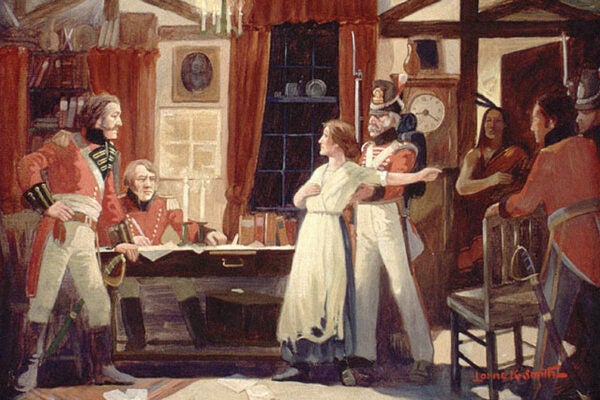The end of slavery in the British Caribbean, Mauritius, and the Cape Colony in 1833—decades before the Emancipation Proclamation and Thirteenth Amendment in the United States—ranks high in British national pride. Less remembered is the fact that this emancipation came with a very high price: £20 million in compensation paid to slaveholders.
In other words, with taxpayers’ money, Britain confirmed that enslaved human beings were, as the slaveholders argued, “property.” The enslaved were purchased to be freed—or at least freed after a 4–6 year “apprenticeship” period that proved to be another form of unfree labor.
The well-kept records of claims for, and payments of, this compensation, equivalent to roughly 40 percent of annual state expenditures, have been digitized into an encyclopedia of British slavery. They show the foundations of wealth-through-slavery in families and institutions over the generations.
Of approximately 29,000 claims for compensation, a small number of individuals (approximately 3,000) living in Britain received almost half the total amount of compensation. Some £8.2 million went to these absentee estate-owners and merchants, some of whom may never have seen brutal fields of Jamaica or Demerara (now Guyana).
The historian Catherine Hall, one of the prime movers in a project tracking the legacies of British slave-ownership, gives as one example the father of four-time Prime Minister William Gladstone. John Gladstone received the astronomical sum of £100,000 in compensation (worth over £16 million today). In William Gladstone’s first major speech in Parliament, where he was a member for sixty years, he spoke against emancipation.
More to Explore
A Primer on Settler Colonialism
Hall also details how slavery and emancipation were remembered—or not—by three notable nineteenth-century figures in the years following these momentous events as the construction of memory about Britain’s intimate role in slavery began.
The politician Henry Richard Vassall Fox, Lord Holland, inherited Jamaican estates upon the death of his wife’s first husband. Lord and Lady Holland received over £2,200 in compensation after emancipation. Yet in his Memoirs of the Whig Party During My Time (1852) Holland was silent on the topic of slavery. Page upon page of foreign policy details ignore the colonies—although his diaries and correspondence show he was intimately aware of and concerned with the politics, and business, of slavery.
Poet Elizabeth Barrett Moulton-Barrett, better known as Elizabeth Barrett Browning after her marriage in 1846, was from a family deeply invested in extracting wealth from Jamaica. She opposed slavery: her “The Runaway Slave at Pilgrim’s Point” (1850) written for American abolitionists, is one of the most powerful anti-slavery works from the day. Her liberation from the tyranny of her father, which Hall calls “one of the success stories of nineteenth-century white feminists,” came about in part because of her inheritance slave-made money from relatives. Ultimately, believing in the primacy of property, she supported compensation. Her father received £7,800 for 397 enslaved men and women on two Jamaican estates.
Politician and historian Thomas Babington Macaulay was the son of a famed abolitionist. He pointedly didn’t follow in his father’s footsteps, but, though a sister married into a slave-exploiting family, he had no direct financial connections to slavery. And, as Hall writes, he seemed to think “abolition had cleansed the nation of any racial taint.”
For in Macaulay’s History of England (1848), it’s as if slavery never happened. This magisterial work, greeted with greatest praise from its first volume and still seen as a landmark of historical writing, concentrated on the late seventeenth century. Yet, as Hall notes, it
had nothing to say about the development of slavery, the Royal African Company, and royal patronage by Charles II and James II, the expansion of London and its docks, the slave ships in Bristol, the merchants who made their future in the trade and became key players in the new global financial markets.
Or how Britain became mad for sugar.
Macaulay, who had worked in India and served in the government that negotiated compensation for slave-owners, acted as if there were no roots to the empire, no foundations of slavery. Little wonder Karl Marx footnoted him as a “systematic falsifier.”
In the aftermath of abolition/compensation, forgetting or disavowing the centuries of slavery became the primary take.
“Pride over abolition displaced guilt over slavery,” writes Hall, a way of thinking that became especially easy when slavery was written out of history.








